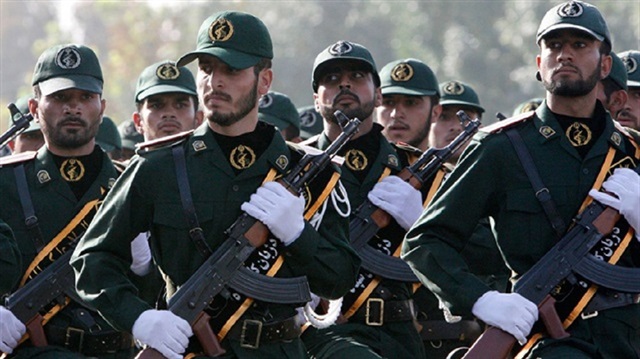
Iran’s Supreme Leader Ayatollah Ali Khamenei has placed the country’s powerful Revolutionary Guard Corps on ‘alert’ in case the protests that have swept Iran in the past week continue.
Speaking exclusively to Yeni Şafak daily about the recent unrest, head of the Southern Azerbaijan National Awakening Movement Elyar Makuyi said that ‘if clashes continue, blood will be shed,’ in reference to a possible intervention by the Islamic Republic’s feared 140,000 strong Revolutionary Guards.
The Commander of Iran’s Revolutionary Guard Corps Ali Jafari has declared on Wednesday that protests are ‘over,’ however, the current situation so far remains unclear.
The Iranian Army has a manpower of 545,000 soldiers that are further bolstered by 1.8 million strong paramilitaries.
Tabriz-based Makuyi, who is an Iranian Turk, also pointed to the fact that Iran has been experiencing ‘serious economic crises’ over the past 18 months.
‘The biggest anti-government protests erupted in 2009 and were quelled by the Revolutionary Guards, which Khamenei has ordered once again today to ‘be ready to assume its duties,’ noted Makuyi.
‘Today’s protests are different than those in 2009 but they could reach that point, there are serious grievances in the country, in the past 18 months, dozens of big factories closed, some banks and state economic enterprises were swindled by government-affiliated personalities,’ continued Makuyi.
‘The cost of living soared, some prominent opposition members were executed. Head of the Retirement Fund Foundation Murteza Beg and the Quds Hospital Mehdi Aziziyan stole 1.5 trillion Rial and fled the country to Germany and the UK respectively.’
‘Falling purchase power and the closed factories and the government corruption have all contribute to dissent. Additionally, the execution of the Iranian-based Baluji leader Abdulmelik Rigi and the Al-Ahwaz Movement leader Ahmed Mula,’ were all cited by Makuyi as reasons behind the protests.
Over the last six days, the demonstrations -- which have included acts of violence -- have spread to other Iranian cities and in some cases have taken an increasingly anti-government tone.
At least 21 people have been killed -- including a police officer -- while hundreds more have reportedly been detained.
Earlier Wednesday, thousands of Iranians took part in pro-government rallies in the cities of Abadan, Ahwaz, Kermanshah, Gorgan and Khorramabad.
On the same day, Mohammad Ali Jafari, the head of Iran’s elite Revolutionary Guard Corps, accused the U.S. and Saudi Arabia of instigating the protests.

















